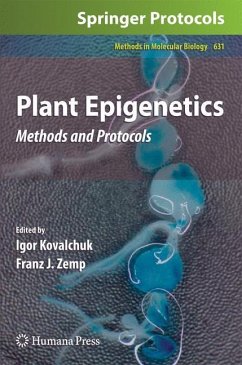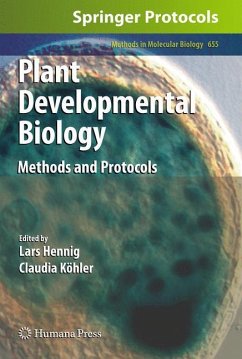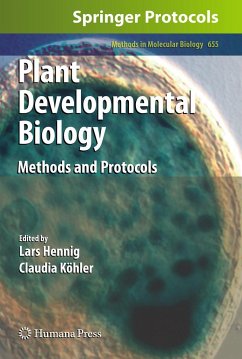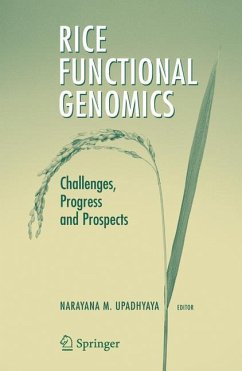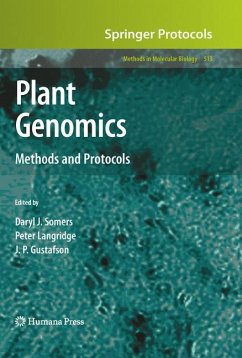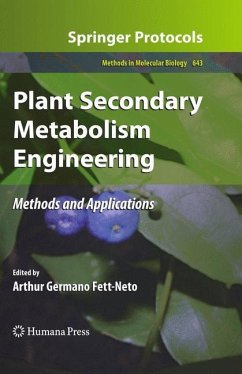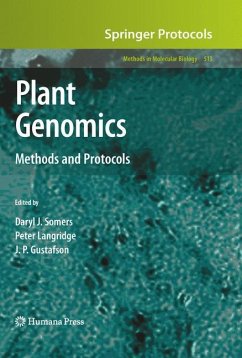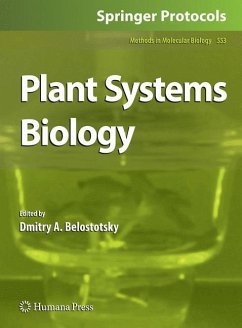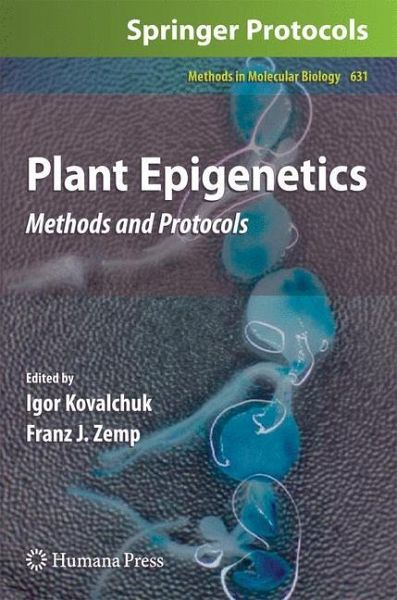
Plant Epigenetics
Methods and Protocols
Herausgegeben: Kovalchuk, Igor; Zemp, Franz J.
Versandkostenfrei!
Sofort lieferbar
105,99 €
inkl. MwSt.

PAYBACK Punkte
53 °P sammeln!
The discovery of DNA as the genetic material brought great hope to scientists all over the world. It was believed that many of the lingering questions in genetics and the mechanisms of heredity would fnally be answered. However, as often is the case in science, more qu- tions arose out of this discovery. What defnes a gene? What are the mechanisms of gene regulation? Further discovery and technological innovations brought about sequencing techniques that allowed the study of complete genomes from many organisms, including Arabidopsis and humans. Despite all the excitement surrounding these tec...
The discovery of DNA as the genetic material brought great hope to scientists all over the world. It was believed that many of the lingering questions in genetics and the mechanisms of heredity would fnally be answered. However, as often is the case in science, more qu- tions arose out of this discovery. What defnes a gene? What are the mechanisms of gene regulation? Further discovery and technological innovations brought about sequencing techniques that allowed the study of complete genomes from many organisms, including Arabidopsis and humans. Despite all the excitement surrounding these technologies, many features of the genome remained unclear. Peculiar characteristics in genome composition such as signifcant redundancy consisting of many repetitive elements and noncoding sequences, active transcriptional units with no protein product, and unusual sequences in promoter regions added to the mysteries of genetic make-up and gene regulation. Indeed, the more we discovered about the genome, the more diffcult it became to understand the complexity of cellular function and regulation. Out of the study of the intricacies of the genome and gene regulation, arose a new science that was independent of actual DNA changes, but critical in maintaining gene regulation and genetic stability. Epigenetics, literally translated as "above genetics," is the science that describes the mechanisms of heritable changes in gene regulation that does not involve modifcations of DNA sequence. These changes may last through somatic cell division and, in some cases, throughout multiple generations.





